Trump Nominates New Federal Reserve Chairman
Jerome Powell, a Federal Reserve board member, is seen as a safe choice who represents continuity.WASHINGTON—President Donald Trump on Thursday announced his choice of Federal Reserve board member Jerome Powell to be the next chairman of the nation’s central bank, succeeding Janet Yellen, the first woman to hold the position.
Trump made the announcement in a Rose Garden ceremony with Powell standing next to him. Trump said Powell had earned the “respect and admiration of his colleagues” during his five years on the Fed’s seven-member board.
Trump also praised Yellen, whom he decided not to nominate for a second term, as a “wonderful woman who has done a terrific job.”
In his remarks, Powell said it had been a privilege to serve under both Yellen and former Fed Chairman Ben Bernanke, saying he shared their sense of mission and dedication and said he would do “everything within my power” to achieve the Fed’s congressionally mandated goals of “stable prices and maximum employment.”
Yellen, in a statement, congratulated Powell on his nomination and said, “I am confident in his deep commitment to carrying out the vital public mission of the Federal Reserve.” Yellen, who did not attend the announcement, said she would work with him to ensure a smooth transition.
After a search that was more public than any before in the Fed’s more than a century of history, Trump’s choice of the 64-year-old Powell was seen as a safe choice that represents continuity at the Fed.
“Mr. Powell could be considered a clone of Janet Yellen in a positive sense. He will continue the same cautious, gradualist policy in setting interest rates that she did,” said Sung Won Sohn, economics professor at California State University-Channel Islands.
If confirmed by the Senate, Powell would become chairman when Yellen’s term ends on Feb. 3.
Trump had considered re-nominating Yellen for a second four-term term. But in the end, he opted for Powell, a Republican, over Yellen, a Democrat, explaining last week that doing so would allow him to put his own mark on the Fed.
Powell would be the first Fed leader in nearly four decades to lack an advanced degree in economics. He has served on the Fed board since 2012 after a career as an investment manager through which he amassed personal wealth in the tens of millions.
Trump had indicated that his final decision had come down to Powell, Yellen and John Taylor, a Stanford University economist. Earlier, the president had also considered Kevin Warsh, a former member of the Fed board, and Gary Cohn, his chief economic adviser.
Powell will likely be welcomed on Wall Street as someone who has supported the cautious stance toward interest rate hikes that Yellen has pursued in her nearly four years as chair and may be inclined to extend that approach if the economy performs as expected.
At the same time, no one is sure how closely Powell will hew to the Yellen model. He is, for example, thought to be more skeptical than Yellen of the tighter regulations that were enacted after the 2008 financial crisis. And depending on how the economy fares, Powell might lean somewhat more aggressively toward interest rate hikes than Yellen did. How effectively he would lead the Fed’s response to an unexpected economic crisis is unknown as well.
In Powell, Trump chose a middle ground between sticking with Yellen, who had been chosen for the Fed job by President Barack Obama, and Taylor, who was critical of the Fed’s response to the 2008 financial crisis and would likely have pushed for raising rates more aggressively than Yellen’s Fed has.
In an interview last week discussing his decision, Trump told the Fox Business Network, “You like to make your own mark, which is maybe one of the things she’s got a little bit against her, but I think she is terrific.”
Trump’s decision against nominating Yellen for a second four-year term makes her the first Fed leader since the end of World War II not to be offered a second term after completing a first. It would also break the pattern of the past three Fed chairs, who were first nominated by the president of one party and then re-nominated by the president of the opposing party.
On Wednesday, the Fed announced it was keeping its benchmark rate unchanged but hinted that it’s preparing to resume raising rates modestly in light of a consistently solid economy. In a statement after its latest policy meeting, the Fed left its key rate in a low range of 1 percent to 1.25 percent. It’s expected to raise rates for the third time this year when it next meets in December.
Though Powell would be the first Fed leader in nearly four decades to lack an advanced degree in economics, associates say he’s devoted much time since joining the board to schooling himself in monetary policy from the Fed’s stable of economists. He is well-liked inside the central bank and would be expected to bring a crucial ability to build consensus.
The Fed leader’s job is considered the government’s top economic policy post. The chairman has only one vote on the Fed’s committee of board members and regional bank presidents who set interest rates. But the chairman’s position is critical to achieving consensus.
The central bank’s power derives from its ability to raise and lower the federal funds rate, the benchmark that banks use to set consumer and business loans. If the Fed succeeds in managing rates, it can achieve its two policy goals — maximum employment and stable inflation. If it errs, it can inadvertently trigger high inflation or an economic downturn. Under Yellen, the unemployment rate has reached a 16-year low of 4.2 percent. But inflation has remained chronically below the Fed’s 2 percent target.
Trump conducted his search for a Fed leader in an unusually open manner, with reporters kept apprised of Trump’s string of interviews with the finalists.
During the weekslong search, Trump often publicly discussed the process in interviews. Recently, he asked a group of Republican senators for a show of hands on the person they favored. It was far different from the approach of past administrations, which held interviews and discussions privately, with few hints of who was being considered.
The seven-member board has three other vacancies, thereby providing Trump with additional ways to put his imprint on the central bank.
Your support matters…Independent journalism is under threat and overshadowed by heavily funded mainstream media.
You can help level the playing field. Become a member.
Your tax-deductible contribution keeps us digging beneath the headlines to give you thought-provoking, investigative reporting and analysis that unearths what's really happening- without compromise.
Give today to support our courageous, independent journalists.

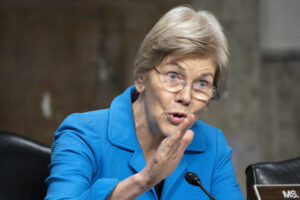

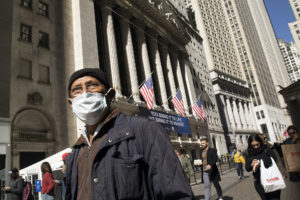
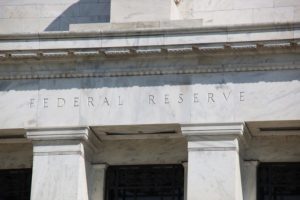
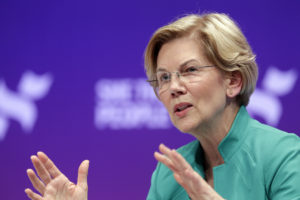
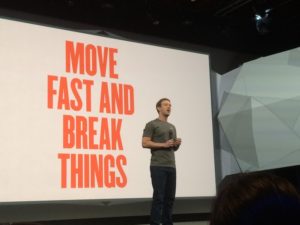


You need to be a supporter to comment.
There are currently no responses to this article.
Be the first to respond.